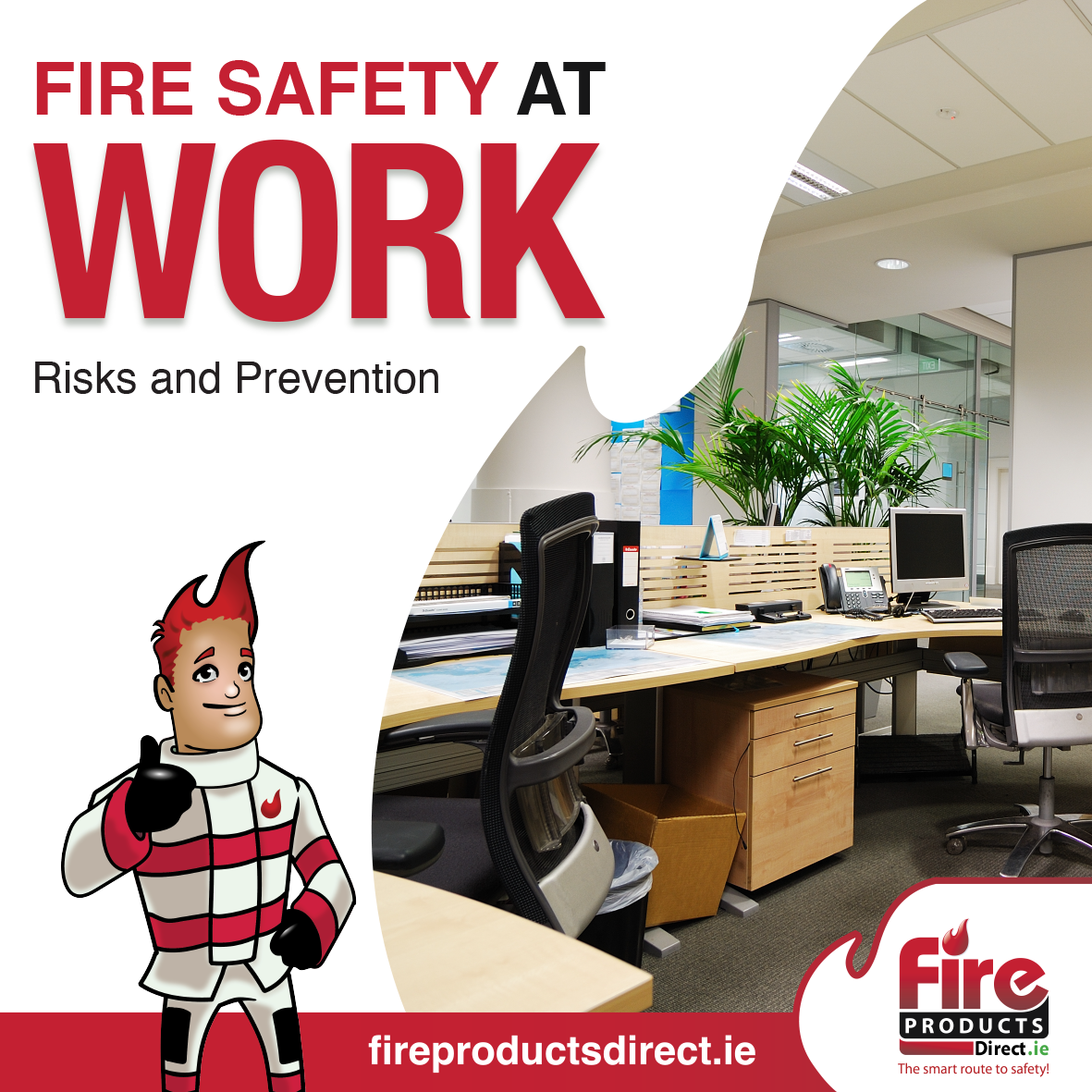
Fire safety in the workplace is crucial for protecting life and property. Different workplaces will face various fire risks, and it is essential to understand these to prevent potential disasters. Here’s a brief look at some of common fire risks across various types of workplaces and how to mitigate them.
Common Fire Risks by Workplace Type
- Offices:
- Electrical Equipment: Overloaded circuits, faulty wiring, and malfunctioning equipment can cause fires.
- Paper and Flammable Materials: High quantities of paper and other flammable materials such as cardboard can fuel a fire.
- Manufacturing Plants:
- Machinery and Equipment: Heavy machinery can overheat or malfunction, leading to fires.
- Chemical Hazards: Flammable chemicals used in production processes pose significant risks.
- Restaurants and Commercial Kitchens:
- Cooking Equipment: Stoves, ovens, and deep fryers are common sources of kitchen fires.
- Grease and Oil: Grease buildup can easily ignite if not managed properly.
- Warehouses:
- Storage Materials: Stacked materials can block exits and fuel fires.
- Forklifts and Equipment: Poorly maintained equipment can spark fires.
Prevention Tips:
- Regularly inspect and maintain all electrical equipment.
- Store chemicals and flammable materials safely and away from heat sources.
- Install a fit for purpose Fire Detection & Alarm system
- Implement strict maintenance schedules for all machinery
- Implement strict cleaning schedules in restaurants and commercial kitchens to prevent grease buildup.
- Keep all escape routes clear and take care not to obstruct fire exits with stock or other items.
Protecting Life:
In Ireland, employers also have a legal obligation to ensure fire safety in the workplace under the Safety, Health and Welfare at Work Act 2005. This legislation requires employers to:
1. Conduct Risk Assessments: Identify potential fire hazards and implement measures to mitigate them.
2. Provide Training: Ensure all employees receive adequate fire safety training, including evacuation procedures and the use of fire safety equipment.
We recommend you have a designated Fire Warden/Marshall tasked with the overall responsibility of executing your emergency plan and that such individuals also receive formal Fire Warden/Marshall training.
3. Maintain Equipment: Regularly inspect and maintain fire safety equipment such as fire extinguishers, alarms, and emergency lighting.
Fire extinguishers: Inspected at least annually by a competent person/service provider or more frequently if your risk assessment indicates so and in accordance with Irish Standard 291.
While your life safety maintenance partner will assist you by carrying out an annual inspection, a lot can happen in a year. You must also carry out frequent visual checks of the firefighting equipment, at intervals of no more than one month apart.
Fire Detection & Alarm systems: Designed to provide early warning, These should be maintained and serviced in accordance with Irish Standard 3218. This is normally two or four inspections per annum depending on the size, nature and risk profile of your business.
Between routine inspections, we recommend you make visual daily inspections of your Fire Alarm control panel, checking the power supply is healthy and that no pre alarm conditions exist.
Emergency Lighting system: Maintained in accordance with Irish Standard 3217 which requires quarterly and annual inspections.
4. Develop Emergency Plans: As well as reducing the risk of fire, employees need to have a clear understanding of what to do in the event of a fire or fire alarm activation. Therefore, it is important to create and communicate a fire evacuation plan, ensuring all employees know their roles in an emergency and the location of designated Fire Assembly points.
Summer is a time, when many businesses welcome students for seasonal work. It is important that all new recruits including casual staff are familiar with your procedures.
As a minimum, fire drills should be carried twice annually or as your fire risk assessment dictates.
Remember: You should record all events and actions in your Fire & General Register. This should be kept in a safe place on the premises at all times and should be available for inspection by any Authorised Officer of the Fire Authority.
Fire safety in the workplace is a shared responsibility. By understanding the specific risks associated with different types of workplaces and complying with Irish legislation, employers can create a safer environment for everyone. Investing in fire safety products and training can make a significant difference in preventing workplace fires and ensuring the safety of all employees.
What to Do If a Fire Happens
- Raise the alarm (In a commercial setting, you can sound the alarm by activating the nearest break glass unit)
- Evacuate the premises
- Call 999 or 112
- Only tackle the fire if safe to do so
Be Smart. Be Prepared. Be Safe.
Check out our range of fire safety products here.







